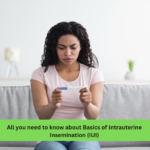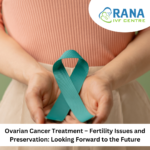Ovarian Aging: Understanding the Impact on Women’s Reproductive Health
Ovarian aging is a natural process characterized by a gradual decline in the production and quality of a woman’s eggs as she gets older. While this process begins at birth, it becomes noticeable between the ages of 30 and 40. During a woman’s reproductive years, ovarian aging occurs as a normal part of the reproductive aging process, primarily due to a reduction in the number of eggs in the ovaries. Eventually, this leads to menopause, marking the end of a woman’s fertility.

Moreover, as eggs age, their quality deteriorates. Older eggs are more prone to genetic defects, which can result in infertility or issues such as chromosomal abnormalities during pregnancy or miscarriage.
Recognizing the Challenges and Implications
Aging brings about various physical changes in a woman’s body, and ovarian aging is one of the most significant transformations. It refers to the natural decline in ovarian function and egg quality associated with age. This process has a profound impact on a woman’s reproductive health and overall well-being. The decline in a woman’s egg production due to ovarian aging can affect her general health and ability to conceive.
The ovaries play a crucial role in a woman’s reproductive system. They are responsible for producing and releasing eggs during the menstrual cycle, as well as producing hormones like progesterone and estrogen that regulate the menstrual cycle and contribute to overall health.
Throughout a woman’s childbearing years, her ovaries can only hold a finite number of eggs, and over time, the quantity and quality of those eggs gradually decline. This decline typically begins in the late 30s or 40s and accelerates as menopause approaches.
Conclusion
Ovarian aging is a natural process that women experience as they grow older. Understanding the effects and challenges associated with decreased ovarian function is crucial for women’s reproductive health and overall well-being. By seeking medical advice, considering fertility preservation options, and maintaining a healthy lifestyle, women can manage the ovarian aging process and make informed decisions to support their reproductive health.





No Comments